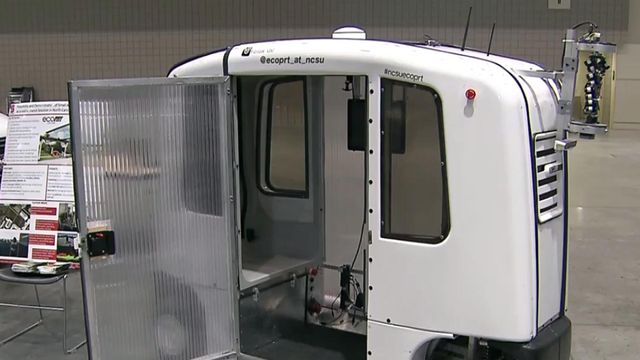State, local leaders seek best route for NC's transportation future
Hundreds of transportation leaders converged in Raleigh on Wednesday to discuss plans to alleviate traffic congestion and design better ways to get around in the future.
Posted — UpdatedBy 2040, North Carolina's population is expected to increase by 3 million, which is equal to the population of Kansas. State and local leaders say proper planning is needed to prevent major traffic problems down the road.
The North Carolina Department of Transportation put leaders from around the state, including policy makers, transportation and industry experts, and representatives from city and county governments, together for a two-day summit to discuss the future of transportation and emerging technologies. Organizers said they hope the conversations will help shape long-range plans to fund a more modern system.
"I think a lot of students today, younger people today, don't see a need for cars of their own," said Waugh Wright, a researcher at North Carolina State University's Institute for Transportation Research and Education.
Wright and dozens of N.C. State students are developing a two-seat autonomous vehicle and testing it on Centennial Campus.
"Usually they would use an app. It would come to their door," he said.
The autonomous vehicle was among the new technologies discussed and on display during the summit, where attendees also want to address potential changes in how people will get around for work and leisure.
"The future is wide open," Raleigh Mayor Nancy McFarlane said, adding that she thinks transportation networks will more closely link the Triangle in the years to come. "Alternative transportation, light rail, commuter rail."
To relieve congestion in the city on short trips, autonomous vehicles could be an option, she said.
"Almost like a fleet that is continuously circulating, and you tell it when you need it, and it takes you where you need to go," she said.
Getting to that point could be challenging, however.
"The levels of revenues coming from the gas tax are flattening out and may start to decline in the next decade," said Tony Lathrop, a member of the state Board of Transportation.
A mileage tax based on how much people drive has been floated in the past but hasn't gotten far. In recent years, voters in cities like Raleigh passed their own funding plans for transportation.
McFarlane said finding a combination of transportation ideas that people will want to use in the future is critical to keeping the region and the state moving forward.
"That is going to be the key, because people right now think it is only a bus, it only comes once an hour, that just doesn’t work for me," she said. "So, we have to design a system that people want to use. I think that is one of the main driving things, so how do we do that?”
Related Topics
• Credits
Copyright 2024 by Capitol Broadcasting Company. All rights reserved. This material may not be published, broadcast, rewritten or redistributed.






